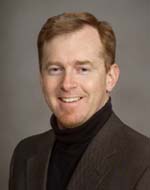 by Preston MacDougall February 04, 2005
At the time, Harvard College, which was founded by Puritans in the Massachusetts Bay Colony, was approaching its bicentennial. And George Washington had already taken command of the Continental Army on the Commons adjacent to Harvard's campus, with revolutionary results, when Dalton revolutionized chemistry. Harvard's current President, Lawrence Summers, is an economist by training. However, he seems to have taken Professor Dalton's words to heart, having recently asked, for the purpose of discussion, whether genetic differences between men and women might underlie the relatively small population of women on the math and science faculties of premier research universities. It should be noted that he was speaking, by invitation, at a conference on women in science. Economics is sometimes referred to as "the dismal science". If Dr. Summers' intent was to foster productive debate on the issue, as he has said publicly many times since, then the return has certainly been dismal. In any case, like Dalton, he has created quite a stir. Cornelia Dean, the Science Editor for the New York Times, took pen in hand to rebuke not just Dr. Summers, but several male speed bumps that she has encountered personally. Her main point was that, genetics aside, "After 10 or 15 years, these little things can add up to real roadblocks." She has not been alone in her vocalized frustration. I will resist saying "You've come a long way, baby!", but let's go back to 1983, when I graduated with a B.S. from McMaster University (a legacy of innovation, it is the "Harvard of the North"). There wasn't a single woman among the twenty-plus chemistry faculty. Six years later, when I was awarded my Ph.D., still none. There are four now, all Assistant Professors, out of thirty-five in total. This would not be atypical for a physical science department at a premier research institution here in the U.S. Still, it is cause for concern, and conferencing, when one considers that the fraction of chemistry Ph.D.'s awarded to women reached one-third about ten years ago, and is growing. (It was under 10% in the 60's.) Here at Middle Tennessee State University, women make up almost 40% of our chemistry faculty, and the figure is slightly higher at the Full Professor level. MTSU, however, is not a premier research institution. Thirty-five miles up I-24, at Vanderbilt University in Nashville, the Harvard refrain is repeated. At the B.S. level, averaged over the past 25 years, about half of the chemistry degrees in the U.S. have been awarded to women - less at the beginning, slightly more now. So, at least at the pipeline's source, it is evenly blended - half XY, half double-X. Are there factors, other than genetics, that could be discouraging women, of child-bearing age, from entering the ultra-competitive scientific research enterprise, where 80-hour work-weeks are not uncommon, and there are well-used cots in any lab that hopes to stay at the leading edge. (That's a rhetorical question.) In a lecture, under the heading "Science is a contact sport", I once quoted from "How the mind works", the 1995 book by now-Harvard professor Stephen Pinker, which has reportedly impressed his campus President. Pinker says "Every idea in the book may turn out to be wrong. But that would be progress, because our old ideas were too vapid to be wrong." This pugilistic nature of science at "the bleeding edge" may not attract the sexes equally. Of course, only a modern-day Luddite would ignore genetics. Variety is the spice of life. In the laboratory, as in the stock market, fluctuations are opportunities for advancement. In my ten years of teaching MTSU chemistry students, I have seen no evidence, on paper, for a gender-based indicator of future success in science. In fact, for those that have passed through a freshman chemistry class of mine, so far the two highest-arching science careers belong to young women. Dr. Summers asked an impertinent question. Let's get on with the business of finding pertinent answers. After all, the light of reason emanating from Harvard, and other great universities, helped end the witch trials in Salem, Massachusetts, over 300 years ago.
|
||
